Revolutionary research changing lives around the world
From defeating disease to super spuds – UK aid supports cutting-edge innovation to tackle the greatest challenges across the globe.
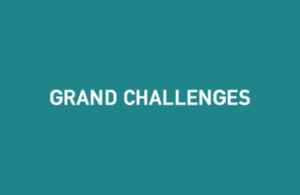
The Grand Challenges annual meeting aims to tackle big global development issues.
Defeating disease: Making malaria history
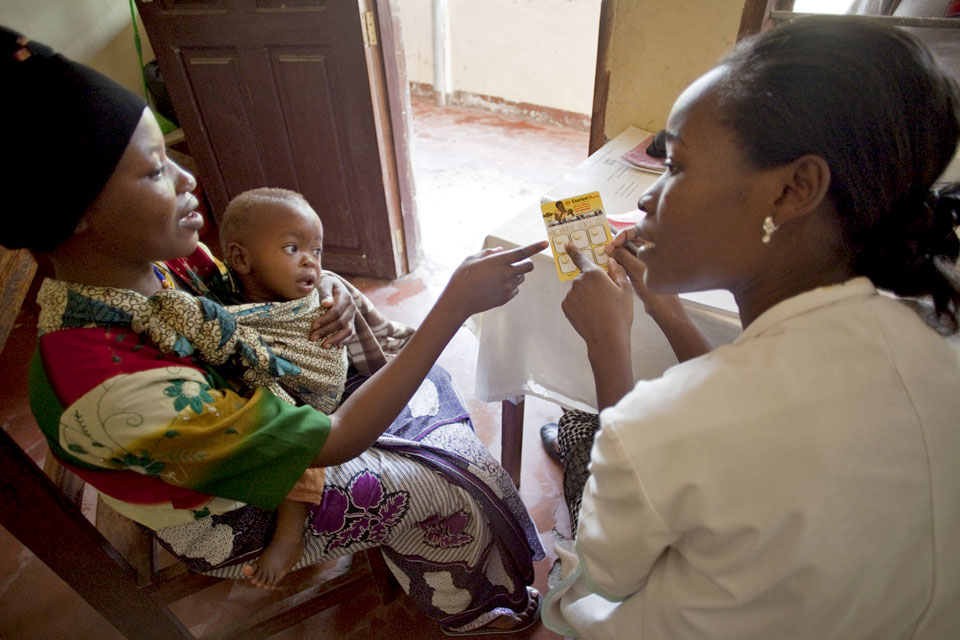
Picture: Frederic Courbet/Gates Foundation
Death rates from the killer disease malaria have dropped dramatically in recent years – down by 60% since the turn of the millennium.
While this is a success story in itself, there are still around 438,000 malaria deaths annually – the vast majority of which are in children under the age of 5 in Africa.
Children are often hit hardest by the disease, made worse by the lack of suitable drugs to treat it – it being difficult to get the right dose for a child.
But that all changed in 2003. Thanks to investment from UK aid and the Gates Foundation, a new sweet-tasting tablet was researched and developed by the Medicines for Malaria Venture (MMV).
This cherry-flavoured, child-friendly drug can be dissolved in water – making it easy for kids to swallow. The tablet – called “Coartem Dispersible” – was launched 6 years later and is now available in 50 different countries.
So far, more than 300 million treatments of this life saving medicine have been delivered and it has been a huge factor in reducing child malaria deaths around the world by 58%.
And there’s more to come. The UK is supporting MMV to work on a one-dose cure that will counter and control malaria, so that one day we will defeat the deadly disease for good.
Lighting up lives: Getting energy to off-grid Africa
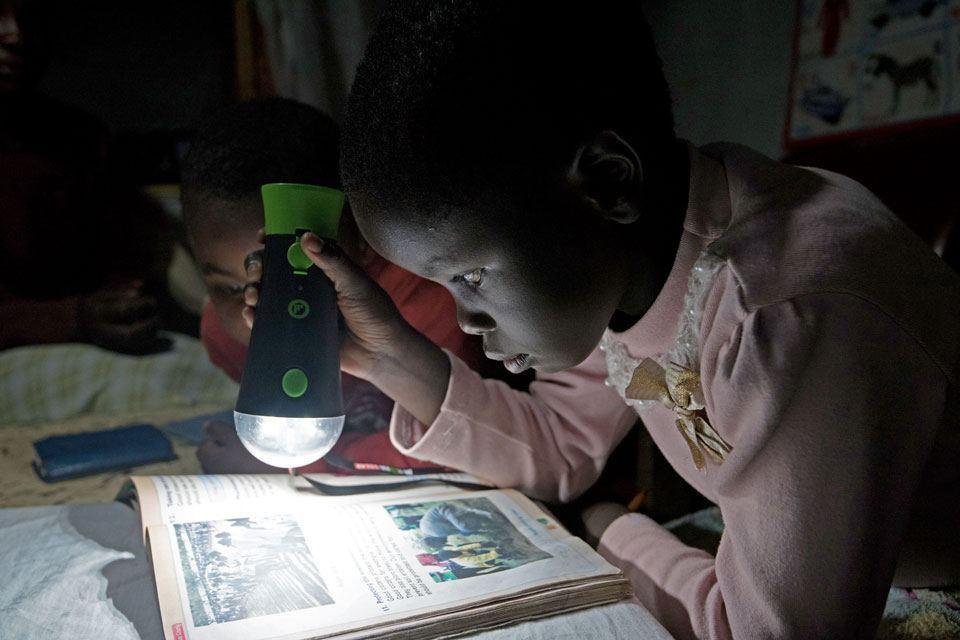
Picture: Allan Gichigi/M-KOPA
In Africa, 2 out of 3 people do not have electricity in their homes.
The high cost of bringing a mains grid to rural areas means people are often cut off from a modern power source and instead are reliant on more expensive, dirty fuels like kerosene.
But the M-KOPA Solar project offers a new alternative. The innovative research partnership – backed by UK aid – is bringing clean solar power to homes across East Africa.
They trialled a new scheme making solar power units affordable and accessible to customers in Kenya, Uganda and Tanzania.
How does it work? Payments are made by mobile phone in small instalments – making it possible for millions who do not have a formal bank account to pay, and who otherwise would be paying more for traditional fuel.
The project has now connected 2 million people in the region to cheap solar power. It means children can do their homework after dark, and parents can charge their mobile phones and power radios – critical communications lifelines in remote rural areas.
So far it has saved its customers a total of $300 million on fuel costs alone. And it is helping to make money – providing thousands of jobs for its engineers and field agents.
Super spuds: Beating hidden hunger
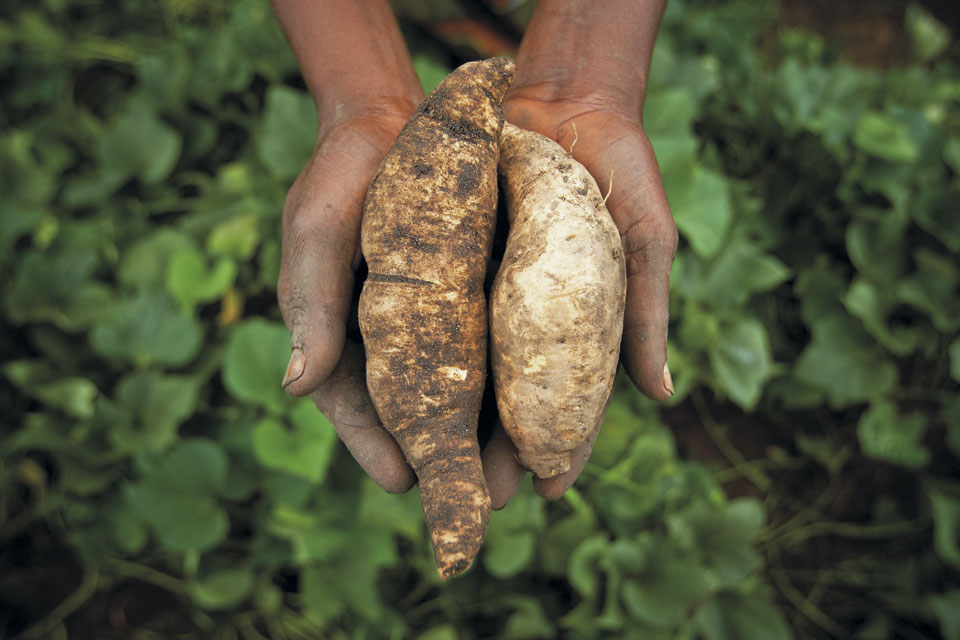
Picture: Olivier Asselin/Gates Foundation
Almost 1 in 3 of the world’s poorest children cannot reach their full potential due to under nutrition.
This “hidden hunger” is a particular problem in sub-Saharan Africa, where more than 40% of children under the age of 5 years old are at risk of vitamin A deficiency.
A lack of vitamin A is a serious threat. It can contribute to blindness, disease and premature death in young children and pregnant women.
But help is now at hand in the form of super spuds which are packed with vitamin A.
These orange-fleshed, enriched sweet potatoes are the product of UK aid backed research into “biofortification” that develops nutrient-rich varieties of vegetables – led by CGIAR, the International Potato Center and HarvestPlus, and promoted by the Gates Foundation.
Sweet potatoes are already popular in many parts of Africa: they are easy to grow, drought and disease tolerant, and provide a great source of energy. However, many traditional varieties are usually low in vitamin A.
Not these super spuds - just one of the new orange-fleshed sweet potatoes can supply the recommended daily allowance of vitamin A, keeping children and mums-to-be healthy.
Now, more than 4.1 million people in Africa are being protected from malnutrition and disease with nutrient-enriched beans, maize, and orange fleshed sweet potato.
Finding families: Tech to reunite loved ones in times of crisis
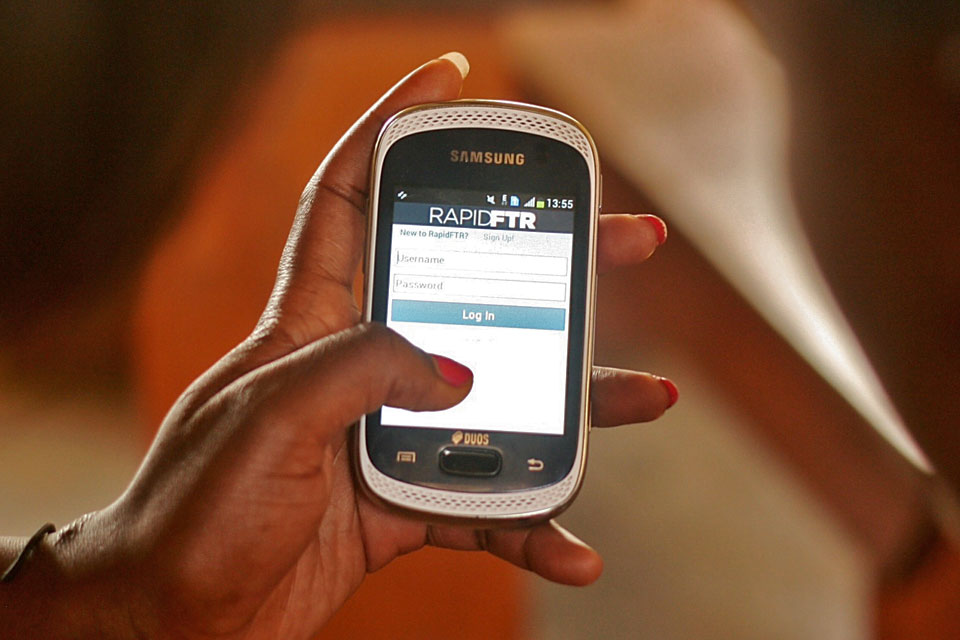
Picture: RapidFTR/UNICEF
When natural disasters strike, or conflict erupts, families can be quickly separated in the midst of the emergency.
This is not only a tragedy for the families affected, but it also leaves unaccompanied children at risk from violence, exploitation and trafficking.
While efforts are made to reunite families as quickly as possible, the paper-based systems often used in poorer countries can be long-winded – prolonging the problem.
RapidFTR sought to change that with an app. The mobile-based programme – developed through the UK supported Humanitarian Innovation Fund – helps to streamline and speed up family tracing efforts, allowing aid workers to collect, sort and share information about missing children with other aid agencies and authorities.
The app also allows users to take a picture of the child – which makes identification by family members much easier than a simple list of names and ages. Once they recognise their children, family members must verify specific information before they are reunited.
So far the app has helped to reunite families in Haiti following the devastating earthquake in 2010, and in Uganda to find child refugees who were forced to flee from neighbouring Democratic Republic of Congo.
And the innovation continues, with further development to make the software more widely available on different platforms, as well as a version that doesn’t require connection to the internet – a crucial feature in more remote locations.
Tablet teachers: Bringing education to children uprooted by conflict
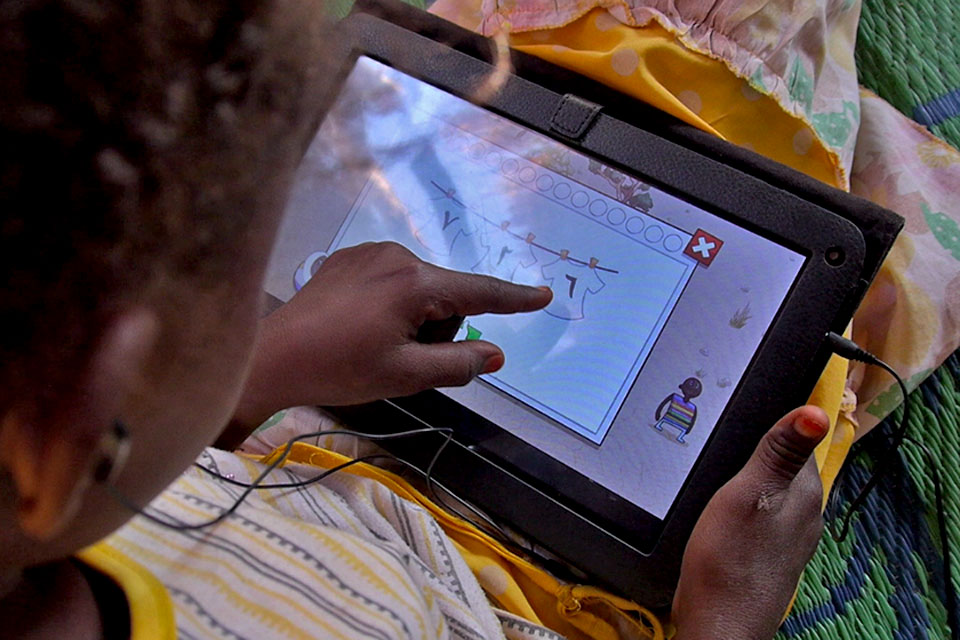
Picture: Can't Wait to Learn/HEA
More than 30 million children are excluded from education because of armed conflict.
Uprooted by war, these children have no school to go to, or teachers available to teach.
Step in the tablet teacher: a series of educational games that allow children anywhere to access vital learning opportunities via tablets like an iPad.
The curriculum-based games were first put to use by children caught up in conflict in Sudan, beginning with a focus on mathematics from 2011 – 2015.
Like many other computer-based games, the exercises reward children to do better, by unlocking new levels once they have mastered and completed key skills.
Its success and popularity has meant it has grown quickly – and is now expanding to cover reading and writing too, as well as wider life skills.
The research shows it’s working: in the mathematics trial in Sudan, children in the project doubled their scores over a 6 week period. And beyond the academic scores, it also showed a positive effect on the self-esteem of the boys and girls involved.
Now with the help of UK aid, UNICEF and the UN’s refugee agency, the programme is expanding beyond Africa, helping to cover the educational needs of Syrian refugees across the Middle East.